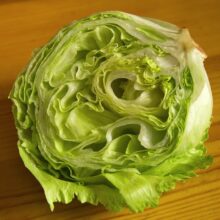Everything You Need to Know About Losing Weight: A Complete Guide – A comprehensive guide to weight loss, covering diet, exercise, and lifestyle changes.
Losing weight can be a challenging and often frustrating process, but with the right approach, it can be achieved and maintained in the long term. This comprehensive guide will cover everything you need to know about losing weight, from diet and exercise to lifestyle changes, to help you on your journey to a healthier, leaner you.
### Understanding Weight Loss
Before we dive into the specifics, it’s essential to understand how weight loss works. There are several important factors to consider:
Calories In vs. Calories Out
The first and most crucial factor is the calorie equation. To lose weight, you need to create a caloric deficit, meaning you need to consume fewer calories than your body burns. This can be achieved through a combination of reducing your daily caloric intake and increasing your physical activity.
Blood Sugar Regulation
Another crucial aspect of weight loss is blood sugar regulation. When you eat, your body breaks down the carbohydrates into glucose, which is then absorbed into the bloodstream. Insulin, a hormone produced by the pancreas, helps to regulate blood sugar levels by facilitating the uptake of glucose by the body’s cells. However, if you consume too many carbohydrates, your body may produce excess insulin, leading to an accumulation of glucose in the bloodstream. This can lead to weight gain and a range of other health issues. To regulate blood sugar levels, it’s essential to focus on whole, unprocessed foods and limit your intake of refined carbohydrates.
### Nutrition and Diet
A healthy diet is the foundation of any successful weight loss program. Here are some key principles to follow:
Eat Protein-Rich Foods
Protein is an essential nutrient that plays a vital role in building and repairing muscles. Aim to consume 0.8-1 gram of protein per pound of body weight, spread out over 3-5 main meals and 2-3 snacks in between.
Incorporate Healthy Fats
Healthy fats like avocado, nuts, and seeds are rich in calories and provide sustained energy. They also help to keep you feeling full and satisfied, making it easier to stick to your diet.
Focus on Whole Foods
Prioritize whole, unprocessed foods like vegetables, fruits, lean meats, and whole grains. Avoid sugary drinks, fast food, and packaged snacks, which are often high in calories and low in nutrients.
Drink Plenty of Water
Staying hydrated is crucial for weight loss and overall health. Aim to drink at least 8-10 glasses of water per day, and avoid sugary drinks that can lead to weight gain.
### Exercise and Physical Activity
Regular exercise is a crucial component of any weight loss program. Here are some tips to help you get started:
Find an Exercise You Enjoy
It’s essential to find an exercise that you enjoy, as this will help you stick to your routine and make it more enjoyable. Whether it’s walking, running, swimming, or weightlifting, make sure to choose an activity that you can sustain in the long term.
Start Slow and Gradually Increase Intensity
If you’re new to exercise, it’s essential to start slowly and gradually increase intensity. This will help your body adapt to the demands placed upon it and reduce the risk of injury.
Incorporate Strength Training
Strength training is an effective way to build muscle and boost metabolism. Aim to incorporate strength training exercises 2-3 times per week, targeting all major muscle groups.
### Lifestyle Changes
In addition to diet and exercise, there are several lifestyle changes you can make to support your weight loss journey:
Get Enough Sleep
Getting enough sleep is essential for weight loss and overall health. Aim for 7-9 hours of sleep per night and prioritize a consistent sleep schedule.
Manage Stress
Chronic stress can lead to overeating and weight gain, so it’s essential to find healthy ways to manage stress. Try techniques like meditation, yoga, or deep breathing exercises.
Monitor Your Progress
Finally, it’s essential to monitor your progress and adjust your strategy as needed. Take progress photos, track your weight and measurements, and use a food diary to log your daily eating habits. This will help you stay on track and make adjustments as needed to achieve your weight loss goals.
### Conclusion
Losing weight is a challenging and often frustrating process, but with the right approach, it can be achieved and maintained in the long term. By following the principles outlined in this comprehensive guide, you can create a personalized weight loss plan that suits your lifestyle and helps you achieve your goals. Remember to focus on whole, unprocessed foods, incorporate regular exercise and physical activity, and make lifestyle changes to support your journey. With patience, dedication, and the right guidance, you can achieve a healthier, leaner you.





